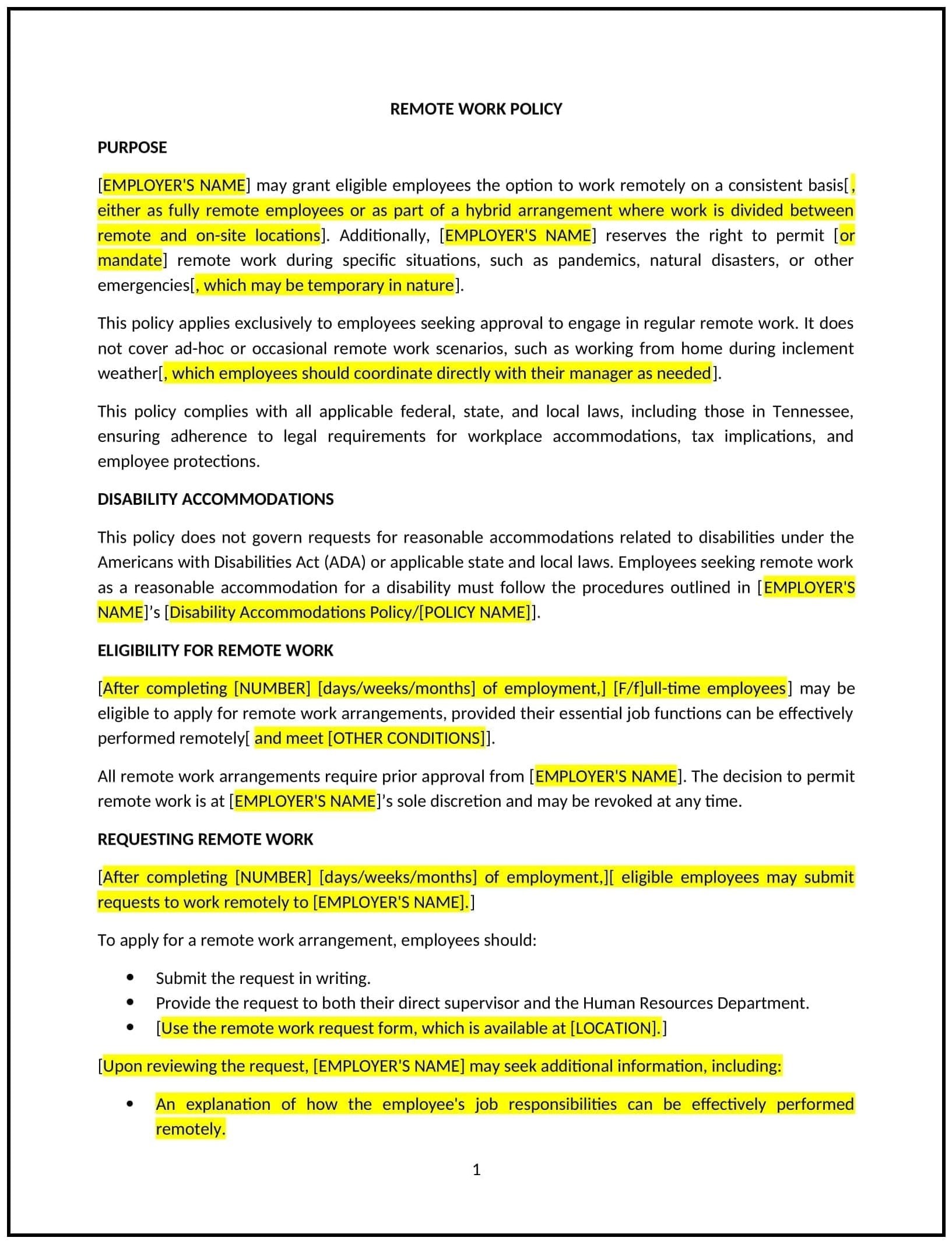Got contracts to review? While you're here for policies, let Cobrief make contract review effortless—start your free review now.

Customize this template for free
Remote work policy (Tennessee)
This remote work policy is designed to help Tennessee businesses establish guidelines for employees working outside the traditional office environment. It outlines procedures for requesting remote work, setting expectations, and maintaining productivity and communication.
By adopting this policy, businesses can support flexible work arrangements, reduce overhead costs, and align with modern work trends.
How to use this remote work policy (Tennessee)
- Define remote work eligibility: Specify which roles or employees are eligible for remote work, such as those with minimal in-person responsibilities.
- Set expectations: Outline work hours, availability, and performance standards for remote employees.
- Address equipment and expenses: Explain whether the business will provide equipment or reimburse remote work-related expenses.
- Establish communication protocols: Specify tools and methods for staying connected, such as email, video calls, or project management software.
- Train managers: Educate supervisors on managing remote teams and maintaining productivity.
- Review and update: Assess the policy annually to ensure it aligns with evolving business needs and employee expectations.
Benefits of using this remote work policy (Tennessee)
This policy offers several advantages for Tennessee businesses:
- Supports flexible work arrangements: Attracts and retains talent by offering remote work options.
- Reduces overhead costs: Lowers expenses related to office space, utilities, and supplies.
- Enhances productivity: Allows employees to work in environments where they are most productive.
- Promotes work-life balance: Helps employees manage personal and professional responsibilities effectively.
- Aligns with modern work trends: Keeps businesses competitive by embracing flexible work practices.
Tips for using this remote work policy (Tennessee)
- Communicate the policy: Share the policy with employees and include it in the employee handbook.
- Provide training: Educate managers on managing remote teams and maintaining productivity.
- Monitor compliance: Regularly review remote work arrangements and performance outcomes.
- Address issues promptly: Take corrective action if remote work arrangements are not meeting business needs.
- Update regularly: Assess the policy annually to ensure it aligns with evolving business needs.